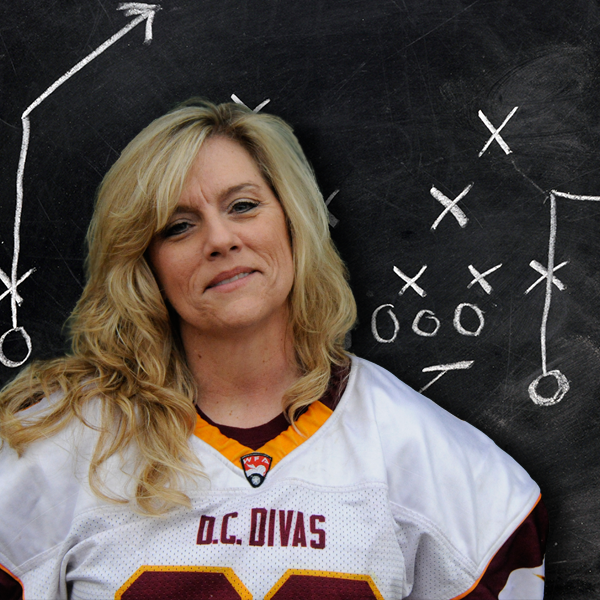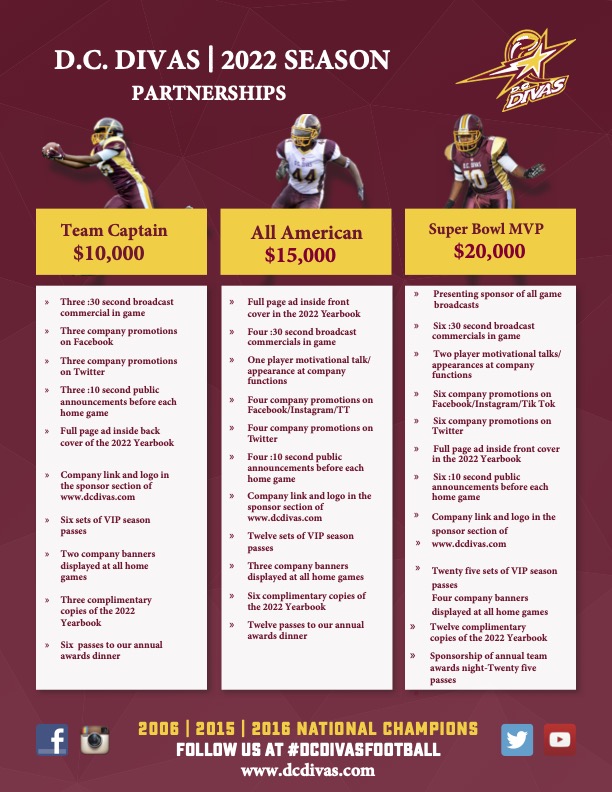Coach Konnie Kordish
| Season(s) Coaching the Divas: 2015-2016 Assistant Coach – 2015-2016 Playing Experience: |
|
Coach Konnie Kordish Q&A Why did you decide to get into coaching after your playing career was over? What has been your biggest adjustment from playing women’s football to coaching it? I didn’t really have an issue earning respect from the players on the defensive line…they’re a great group. I coached youth football for about three years, so I have a little experience coaching at the youth level, which I think they respected. However, speaking to a youth is obviously quite different from speaking to an adult, so I know I’m still learning. Coach Black has been teaching me a lot…most people think he has such a rough, mean, intense personality, but he really cares about his players, and they truly respect him. That’s something I’m trying to learn from him – how to be a boisterous coach but still be respected. How has your background as a women’s football player helped you as a coach? What is your overall coaching philosophy? How would you like your players to play the game? I want our players to play the game unselfishly, and I want to explain to them what being unselfish means. Being unselfish means if you’re out there and you get too tired, you need to sit down for a play and let somebody else go in. Now, as a competitor, you never want to come out of the game – never. But staying out there when you’re overly tired is actually being selfish, because you’re hurting your team. Unselfishness means that if your teammate makes an error, don’t ridicule or humiliate her. Negative energy is never good on the sidelines. Instead, help her put it behind her and show her what she can do to do it better the next time. Defensive players are naturally a little more aggressive, and we’re supposed to be killers on the field. I’m trying to explain to them that they can still be an aggressive killer on the field but towards the other team, not your teammates. You need to be supportive of your teammates, especially the rookies. Finally, I believe that you have a big responsibility when you are a skilled player who has natural talent, and part of your responsibility with that talent is to help your teammates develop their own talent. Mentoring your teammates is going to help them become better players, it’s going to help make you a better player, and it’s going to help the whole team get better. All of us, players and coaches alike, need to motivate, encourage, and inspire each other to get better. |


